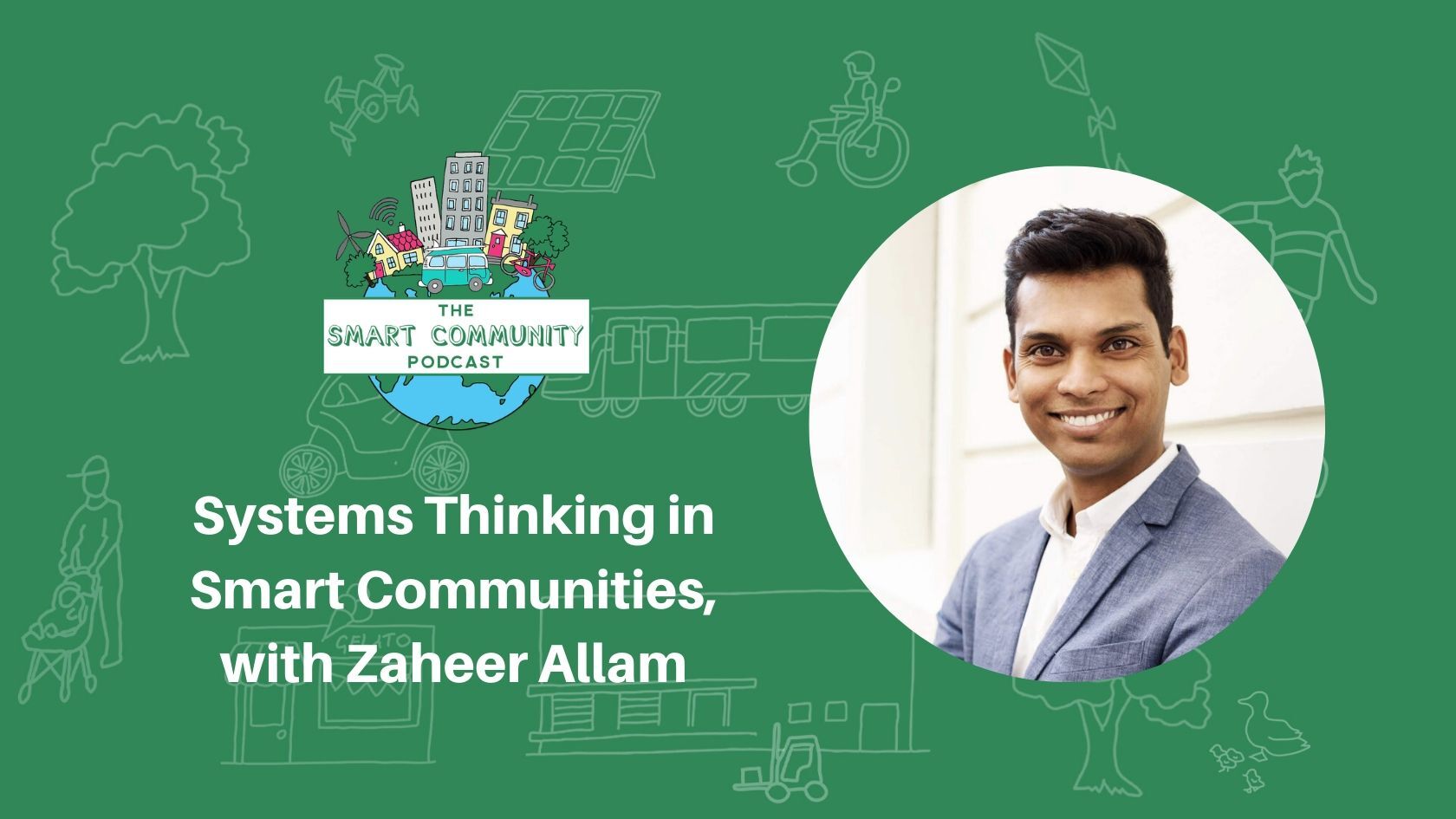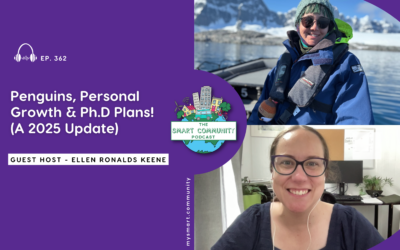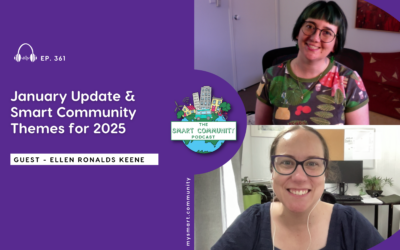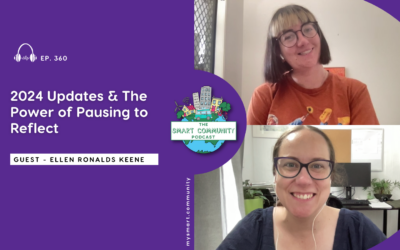In this episode of the Smart Community podcast, I have a great conversation with Urban Strategist Zaheer Allam. You might remember I spoke with Zaheer earlier in the year in Episode 158 and when COVID-19 broke out I knew I wanted to catch up with him again. So this podcast episode is another audio from the YouTube series I’ve been doing catching up with previous podcast guests during the pandemic. We recorded this chat on the 4th of May, and since then Zaheer tells me he’s doing fine, he’s still doing lots of writing because borders are still closed, but work is slowly resuming.
In this conversation, Zaheer tells us what the situation is like in Mauritius at the time of recording, what’s changed such as working from home, flexible work options in general and the disruptions for Zaheer personally. We cover a big range of things all along the themes of how COVID has impacted every industry and brought to the forefront a lot of Smart concepts, such as the importance of data, digital literacy, community engagement and cross-disciplinary approaches. Zaheer tells us why systems thinking is so important in Smart Communities, always but now especially as we move into a post-COVID world. We discuss the opportunities and challenges of transitioning to a digital economy, of localising supply chains, investing in resilient infrastructure and the democratisation of data. We finish our chat discussing the ways Smart Cities and Communities, including the 15 minute city concept, can help us build more sustainable, resilient, human-centred places to live, work and play. As always we hope you enjoyed listening to this episode as much as we enjoyed making it.
Listen here:
What we cover in this episode:
- Zaheer’s background and a bit about what he does
- What’s happening in Mauritius at the time of recording, including working from home, flexible work contracts and the future of work being discussed
- The disruptions for Zaheer personally, including what he’s writing and researching
- How COVID-19 has flipped the university model, and how the need for online delivery impacts the future of universities
- The way the pandemic has impacted every industry and brought to the forefront a lot of Smart concepts, such as data, digital literacy, community engagement and cross-disciplinary approaches
- Why systems thinking is so important in Smart Communities, always, but especially now as we move into a post-COVID world
- How to balance fast changes to legislation and technology while keeping in mind the ramifications for the people with the most at stake
- How we can use this emergency to push through changes related to other important issues like climate change
- The opportunities and challenges of transitioning to a digital economy, localising supply chains, investing in resilient infrastructure and democratising data
- What this global ‘work from home experiment’ has shown us about building trust digitally, having stable foundational infrastructure and the connectivity divide
- How Smart Cities and Communities, including the 15 minute city concept, can help us build more sustainable, resilient, human-centred places to live, work and play
Quotes:
“Interestingly, when we look at universities, there’s a whole lot of infrastructure, parking spaces, departments that have buildings, labs, and so on. It’s like investing in a rich real estate portfolio…But now all of a sudden universities are closed around the world…So, suddenly, smaller universities which adopted online learning are now better off than larger universities, which we’re trying to protect their reputation by being a more traditional University.”
“For me if the definition of a city is the foundation of everything, it has the services—transport, economics, water—different multi-faceted and layered dimensions. And for you to be really able to understand and to design something that’s properly and contextually appropriate, you need to have some basic understanding of those dimensions and how they relate with each other. So if we do, let’s say, 10 PhDs in real estate economics we don’t really know how the block of land interacts with each other, what’s the demand of energy on the whole block and how it relates to designing a sustainable, resilient system. So this kind of interdisciplinary thinking and innovation across domains is very, very important.”
“Usually, technology moves at one speed and legislation is usually very slow. It never follows at the same speed. But now we’ve been seeing legislation at such a fast speed in different countries around the world…it’s just incredible. We are seeing a disruption in just three months at a speed that we’ve never seen before.”
“There’s a really fine balance between the data that we want to be able to stop spread the virus and then the data that is crossing the line of privacy. And are we willing to give that out for a short period of time? But then what happens to that data afterwards? And I think because we aren’t literate enough to understand locally, we’re not understanding what that data actually means.” ~ Zoe
“We’re seeing voluntary individual data sharing, bypassing the previous advantage of corporations, which they [were] gathering the data of everybody. So we are seeing a sort of democratization of the data landscape at the moment, and this is quite interesting. It’s like citizen finance in a way where we’re seeing that the need to do that and we’re doing it on our end and we’re seeing the emergence of smaller businesses coming up with different apps which are riding on those foundational structures by those corporations.”
“If few small businesses lose, or go bankrupt, what happens on the city scale? Well, usually we say city gating complexity and intricacy for the diversity of the business offerings. If we say, if we see the small businesses close, we’ll see the emergence of two major corporations that takes that 25 space on the whole city block. So this, we need to follow urban planning legislation as well as with those economic policies and programs because this impacts on the ability and the richness of the urban fabric.
“We need a multidisciplinary team where we have urban planners, together with scientists, with economists working out the reasons or the need to densify those urban areas and to create more resilient systems [instead of] going to all different directions and allowing the cities to explode out of control.”
Connect:
Find the full show notes at: www.mysmart.community
Connect with Zaheer on LinkedIn and find him on Facebook
Connect with me via email: hello@mysmart.community
Connect with My Smart Community via LinkedIn or Twitter and watch on YouTube
The Smart Community Podcast is produced by Perk Digital.






0 Comments